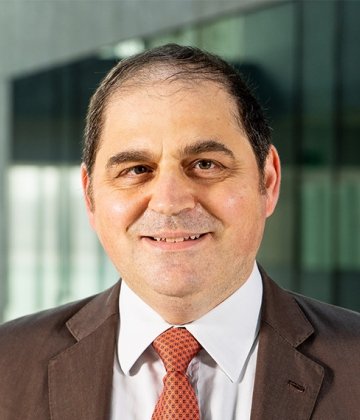Claudio Tebaldi

I have been an Associate Professor at Bocconi University since 2011. I have held the National Qualification to Full Professorship in Quantitative Methods for Economics, Finance, and Insurance since 2015. I have received international prizes for my research: Best Paper in Derivatives for the NFA 2019 and the Best Paper of the Swiss Econometrics and Finance Society Meeting 2007. I serve as Editor-in-Chief of the journal Quantitative Finance. I have been regularly invited by and visit many private and public research and policy institutions including UCLA, NYU, NORDITA, the University of Copenhagen, the Federal Reserve Board, ECB Deutsche Bundesbank, EC Directorate for Financial Affairs, and Bloomberg.
My research interests are interdisciplinary. In the area of financial economics, they are mainly focused on assets, derivative pricing, and risk management. In the area of mathematical and physical sciences, my research is focused on complexity theory and collective phenomena. You might wonder what these topics have in common: adoption of new information technologies is reshaping the economy and the behavior of financial markets is becoming more and more similar to that of the ‘complex systems’ we observe in nature. The goal of my research is twofold: first, showing that properly framed, simple economic principles produce a credible description of these collective outcomes. Second, identifying robust and efficient decision rules and regulation approaches relying on advanced statistical methods (e.g., machine learning or big data analysis) to help individuals facing this risky environment.
Select saving for retirement in Europe: the long-term risk-return tradeoff
JOURNAL OF PENSION ECONOMICS & FINANCE, 2024A persistence-based Wold-type decomposition for stationary time series
Quantitative Economics, vol. 11: 203-230, 2020Consumer protection and the design of the default option of a pan-European pension product
Swiss Finance Institute Research Paper Series, 2019Optimal asset allocation with heterogeneous persistent shocks and myopic and intertemporal hedging demand
in: Behavioral Finance: The Coming of Age, Venezia, I. (ed.), London, World Science Publishing, 2019A multivariate model of strategic asset allocation with longevity risk
Journal of Financial and Quantitative Analysis, 2017A "coherent state transform" approach to derivative pricing
International Journal of Theoretical and Applied Finance, 2009On the relation between the Stochastic Jacobian and the Riccati ODE in Affine Term Structure Models
World Meeting of the Bachelier Finance Society, Chicago 2004, 2004Pricing and Hedging a portfolio of derivative securities: a simulation approach
Economic Notes, 2001Multifractal scaling in the Bak-Tang-Wiesenfeld sandpile and edge events
Physical Review Letters, 1999Most of my teaching activities are within courses of quantitative methods for finance and economics. My classes are populated by international students with very diverse cultural backgrounds, ranging from young, highly proficient STEM students to expert business executives. Active participation is the key for a successful learning experience, so during my classes I promote and incentivize discussion and interaction. I see the whole education process as a sequence of focused problem-solving activities. I rely heavily on information technology to ease the hurdles created by quantitative methods. When possible, I try to keep my teaching well aligned with the international research agenda.